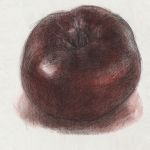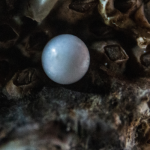I remember her with the clarity of a panic-ridden mind amped up on caffeine and a shot of undiluted desperation. That is to say, I remember her well.
It was the evening my father called me up drunk, begging me to convince my mother to change her decision. “I don’t understand why she wants to leave me,” he said. “What haven’t I given her?” It was a week after my mother had been admitted to the emergency ward with a cut running from her eye to her cheek, courtesy of my father’s backhand, the ring on his finger. It was also three days after my friend unexpectedly committed suicide and her distraught parents stayed on the phone line with me for an hour. It was a Thursday. It was raining. And I was a mess.
My car had broken down in the middle of city traffic that afternoon, hissing out smoke. I had been late for an interview. My hair hung in frail strands when I finally reached the office, looking like dead rats and weighing me down, cold drops trickling down my back. My confidence shattered, and as much as I tried, I could not bring myself to smile. Especially when the recruiter asked me to.
There were no cabs available when I left, so I was at the bus stop, trying to stay on my heels under a small parapet the width of my nose. The wind caressed the goosebumps on my neck. A stranger’s elbow dug into my side. Smoke from a cigarette wafted across. The sewage was overflowing, forming a river, cradling pieces of plastic and a lone leaf, its edges tattered, struggling to hold itself together. My ankles were soon submerged, and when I checked my phone, I had thirteen unread messages from my father, seven missed calls.
The bus arrived and groaned to a halt. Limbs shoved their way through the door; some stumbled and fell. The sides of the bus seemed to bulge, stuffed to the brim. My body threatened to melt into a pool of tears and mingle with the rain, tired of always moving, tired of having to cope. And the sight of the bus, creaking on its wheels, covered with rust and peeling paint, the struggle involved to get through its doors, did nothing to ease my mind. My body swayed, threatening to fall. My fingertips were numb, the world was distant, and I could not move, could not bring myself to figure out what came next. Did not know if I wanted to.
That was when I saw her. On that evening painted grey by the murky Indian monsoon, her raincoat caught my eye, a burst of yellow in the monochrome tide, and time seemed to be drawn towards her; life hinged on that one moment—on one side chaos and on the other her suspended image. She was small, wearing Wellingtons that came up to her knees. They matched her coat. She marched through the frenzied crowd alone, pushing and shoving the men around her with a fierceness that seemed to emanate in flames, turning the air around her to steam. I could see her move onward, crossing her arms across her chest to brace herself against the aggressive flow, anchoring her feet in place when the people who disembarked surged towards her and made their way past. There was no one to hold her steady; no one to stop the men from scrabbling at her sides. Everyone looked past her but me.
She got onto the bus, clothes intact and bag still on her back, and my shoulders collapsed inward with relief. I could breathe again.
Our eyes met. Just for a second. A smile flickered in her gaze, and, in that moment, we were one, she and me, me and her, two separate entities connected by a shared understanding of a world that makes every second feel like wading through molten lead, every stumble feel like falling into the black depths of an unforgiving sea, every step up feel like a meteoroid shower, rare and breathtaking. I see you, too, her eyes seemed to say. Then, she vanished, engulfed by a wall of bodies on every side, the yellow of her coat fading into the roaring rain.
My phone rang again, shuddering in my hand. I let it fall from my fingers and watched it get swept away towards the gutter, smothered in a watery hug, just as the bus conductor blew his whistle for the final call.
I began to move forward.
…
Biography
Purnima is a writer, editor, and artist. Her writing has been published in The Sea Letter and Emerge ’19 and is forthcoming in MoonPark Review and others. She is also a TA for The Writer’s Studio, Simon Fraser University, and reads & edits for Periwinkle Magazine. Website: purnimabala.wordpress.com; Twitter: @purnimabala; Instagram: @purnimabala.
Image: unsplash.com





